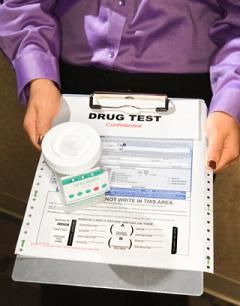Drug testing has become a regular part of the screening process for many different jobs. In some professions, specifically those in the safety-industry, namely transportation, law enforcement, or any job that requires you to drive on company time, the employer can ask for random drug tests at any time without notice. According to a recent study, about 71% of employers conducted some form of pre-screening drug tests before hiring an employee. Only 29% responded that they had absolutely no drug testing done prior to hiring an employee, or during their employment. Because drug screening is such a regular part of the employment process, it is necessary to know your rights, as a potential employee when it comes to drug testing.
What are the Rules Regarding Pre-screening Drug Tests?
Specific rules and regulations for drug testing may vary from state to state, but the majority of states agree that private employers, and government agencies, have the absolute right to drug test potential employees prior to hiring them. That is to say that a drug test must be administered before the employees information is handed over to payroll. After payroll information has been added, the employer cannot randomly require a drug test as a stipulation of employment.
Many states also deem it necessary for the employer to inform the potential employee of a necessary drug test as part of the screening process. Either the application must state the drug testing policy, or the job posting must state the drug testing policy for it to be considered legal. Additionally, many states require an employer to offer the applicant a job contingent on a drug test before the test is administered. All applicants must be subjected to the same testing if they are offered a position, as well. Finally, all drug tests for employment purposes must be done at a state-certified lab.
Are Random Drug Tests Legal?
Random drug tests are legal under certain circumstance or constraints. Unless an employee has, in writing, stated a drug-free policy, and given individuals ample notice, random drug tests cannot be conducted on current employees. Drug tests can also not be administered as a blanket policy after the date of employment. Employers can, however, ask for a drug tests from individuals who they believe are acting suspiciously.
Randomized drug tests are, however, legal, in certain safety-driven professions, and the courts generally agree that an employer has a right to test employees if they are involved in an accident that may be influenced by drugs. Those working in the transportation field may also be subjected to random drug test under federal rulings.
Can an Employee Refuse a Drug Test?
The answer is simple; yes, an employee can refuse a drug test, but an employee can be fired for refusing a drug test, if there is suspicion attached to the testing. Random drug tests, in an industry where they are not standard, or if there is no valid suspicion, can be argued in a court of law. However, employers can utilize any pertinent data to proof the test was not random, but rather, was based on suspicion. Many cases have been fought over such instances, and more often than not, the employer has won, because they do have the right to create their own policies regarding drug use in the workplace. This is especially true in the private sector.
If you feel your rights have been violated in any way because of a workplace drug test, you can contact The Law Office of Scott R. Dallas in Alameda, CA.